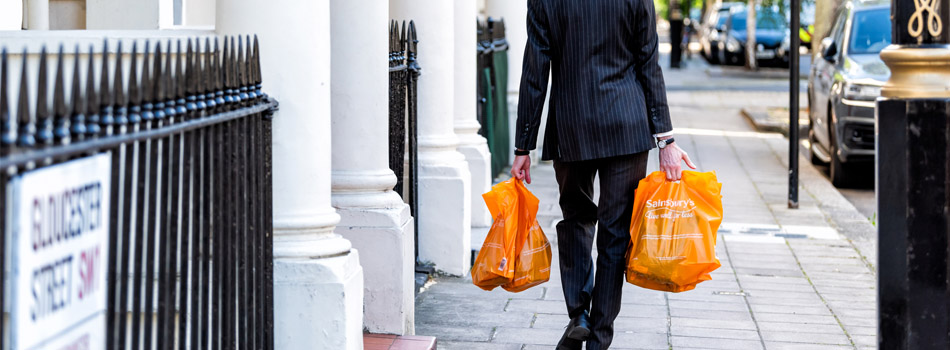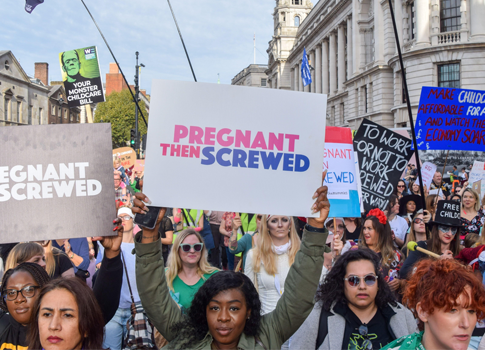In a bid to stop the environmental damage caused by plastic bags, the government has recently increased the charge for “single-use” bags from 5p to 10p. The increase, albeit minor, has been touted as a major step in changing consumer behaviours by the media. However, our behaviours are shaped by more than price. In fact, behavioural science suggests that habits are created by a range of competing factors – and this one alone will not be enough.
While the government estimates that single-use plastic bag distribution has fallen by 95% since the 5p charge was introduced in 2015, the reality is that many consumers have simply substituted “single-use” for “bags for life”, with little evidence that these substitutes are being used more than once.
In fact, a joint study by EIA and Greenpeace found that in 2019 alone the major supermarkets sold 1.58 billion “bags for life”, equating to almost 57 “bags for life” per UK household – a 65% increase since 2017. Whatever government ministries or supermarkets choose to call their plastic bags, the reality is we are all still buying and throwing away far too many.
So, will increasing the price of single-use plastic bags from 5p to 10p make any difference? Sadly, evidence suggests not. A meta-analysis of 17 peer-reviewed papers on the behavioural impact of plastic bag charges found that though the levy of plastic bags was lower than those in Ireland (€0.15) and Portugal (€0.10), the plastic bag charge in England had an equal effect. This suggests people are changing their behaviour, not because of the cost, but because the levy on plastic bags signals a societal shift away from plastic waste and people don’t want to act against this new expectation.
But would increasing the price help? Say 50p per bag or even £1? Though the impact of fines is very specific to context, the outcome of raising fines is often not as expected. In a well-known study where fines were introduced to parents of nursery school children who were late to pick up their children, the research found that the number of late pick-ups increased. This is because parents saw the fee as a charge worth paying to be a bit late rather than a fine to avoid.
The same effect may occur with higher-priced bags, as the government has said there is a clear expectation the proceeds from the charge of plastic bags will go to good causes. This expectation, though seemingly the right thing to do, may have the unintended consequence of making people feel that 10p is a fee they can be happy to pay.
The continued consumption of plastic bags shows there is clearly a gap between the 73% of the UK who support the charge on bags and their day to day behaviour. This intention-action gap is caused by the availability of plastic bags, the lack of paper options and the fact that people simply forget to bring reusable alternatives.
When it comes to shopping, we are all creatures of habit and the most effective solutions for changing our behaviour will address the real barriers to change and keep the solutions simple. Actions like those by the Co-op, which will completely remove plastic bags (including “bags for life”) and offer “tear-resistant” paper alternatives, should be applied to all major supermarket chains which will serve to simply remove the option of plastic.
Furthermore, supermarkets and councils should focus on changing the expectations. One easy option is to change the default cashier question from asking if we want bags to simply expecting shoppers to have them, as recommended by the local government association in their proposals for plastic bag reduction. Simple and timely nudges to prompt shoppers to bring their own bags will also serve to bring down the use of single-use plastic bags.
The 5p charge on single-use plastic bags has been a huge success in drawing people’s attention to the issue of plastic waste and highlighting just how easily we could all help reduce our day to day consumption. However, the increase to 10p won’t necessarily build on that success: price alone won’t change behaviour. Supermarkets, the government and local councils, therefore, need to employ a number of other measures if they are going to reduce the use of “single-use” bags.
This article was written by our MD Tom Laranjo, and was originally published in Retail Sector.






